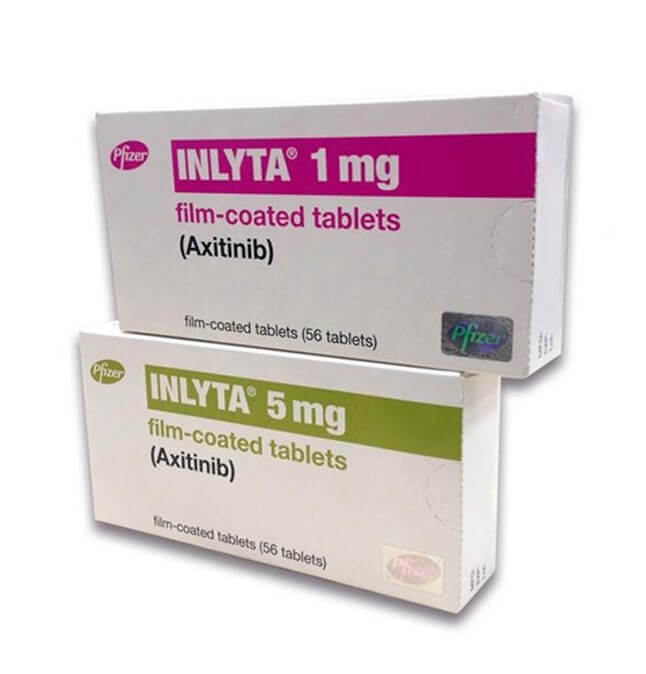The most common side effects of Inlyta are:
- Diarrhea
- Hypertension
- Fatigue
- Decreased appetite
- Nausea
- Hoarseness or changes in the pitch or quality of voice (dysphonia)
- Hand-Foot Syndrome (HFS) – tingling and tenderness, redness, swelling and pain on the palm of the hand and sole of the foot
- Weight loss
- Vomiting
- Abnormal physical weakness (asthenia)
- Constipation
You should report any of these symptoms to the prescribing physician as soon as you notice them.
There are also some rare but serious side effects, including:
- Hypertension. If severe and persistent despite use of antihypertensive therapy and dose reduction, your doctor may discontinue treatment. of Inlyta,
- Cardiac failure which may require permanent discontinuation of Inlyta
- Gastrointestinal perforation and fistula. Your doctor will monitor for symptoms of these periodically throughout treatment
- There may be signs of hypothyroidism, in which case your doctor may prescribe thyroid hormone replacement therapy
- Inlyta may affect wound healing
- Proteinuria, also called albuminuria, shows up as elevated protein in the urine. It is not a disease in and of itself but is a symptom of certain conditions that may be affecting the kidneys
- Inlyta can cause harm to a fetus. Patients who are engaging in sexual actcity should use effective contraception.
Inlyta (axitinib) is prescribed for adult patients who have been diagnosed with an advanced stage of renal cell carcinoma (RCC). It may be prescribed in combination with pembrolizumab for the first-line treatment of patients , or as a single agent when a prior systemic therapy failed.
Renal cell cancer (also called kidney cancer or renal cell adenocarcinoma) is a disease in which malignant (cancer) cells have been found in the lining of tubules in the kidney.
Some of the risk factors that may contribute to RCC include the following:
- Smoking
- Overuse of some pain medicines, including OTC meds
- Obesity
- Hypertension
- Genetics such as von Hippel-Lindau disease or hereditary papillary renal cell carcinoma.
Signs of renal cell cancer may include:
- Blood in the urine
- A lump in the abdomen
- A persistent pain in the side
- Loss of appetite
- Weight loss for no known reason
- Anemia.
Check with your doctor if you have any of these symptoms.
RCC is usually diagnosed with a physical examination, followed if necessary by an ultrasound exam, blood chemistry studies, urinalysis, a CAT scan or MRI scan, and biopsy.













